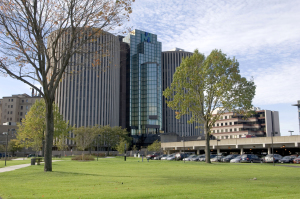By Karen Scott, Administrative Coordinator, Center for Health Equity Engagement Education and Research
Perhaps you exhibited one of the many symptoms associated with COVID-19 in February or early March of 2020. The World Health Organization did not declare COVID-19 a Global Pandemic until March 11th. Perhaps you would have never correlated feeling bad with symptoms of the deadly virus, that to date has killed over 100,000 Americans. As you reflect back, you would like to get an antibody test to confirm or rule out what you suspect, an antibody test is presumed to reveal previous exposure to the virus if it is accurate and reliable.
The Center for Disease Control and Prevention declared antibody tests may be wrong 50% of the time, but this is slowly changing. Deciding on a test that will provide accurate, helpful results will be a challenge. Early on, the Food and Drug Administration (FDA) allowed tests with no proven accuracy or reliability to be sold. With 90 or so brands of tests on the market, it is difficult to determine which are accurate. A recent study conducted by Scientists from the University of California assessed 14 tests, determining only 3 to be reliable, while 4 revealed false positive rates of 11-16. A test that reveals a false positive rate of 14 should be discarded. More recently, the FDA made revisions requesting the manufacturers of anti-body tests provide data citing reliability or the tests would be pulled from the market.
So far, data for Antibody Testing has not been determined accurate or reliable. Moreover, antibody testing should reveal what’s called, “neutralizing antibodies” which cause the virus to become inactive. However, the antibody test that would convey this information is expensive, relegated to lab settings, and unfortunately does not have the capacity to test massive amounts of potentially infected individuals.
Researchers discovered that the first known death from the virus occurred on February 6, in California. However, this death was not confirmed until April. Medical Examiners are now reviewing deaths as far back as December to determine if the cause was COVID-19. Currently, unless you exhibit symptoms of COVID-19, few people can get a diagnostic test. A reliable, accurate antibody test could provide a valuable snapshot in studying the spread of the virus and provide useful information to individuals. Testing is paramount as the country begins to relax its “stay at home orders”, but it may be some time before valid and reliable Antibody Tests become more widely accessible.
References:
https://www.theverge.com/2020/5/7/21248734/coronavirus-antibody-tests-explained-covid-19-immunity-accurate
https://www.npr.org/sections/health-shots/2020/05/20/859688631/a-double-barreled-approach-to-antibody-testing-could-improve-accuracy
CDC: Coronavirus antibody tests could be wrong 50% of the time

